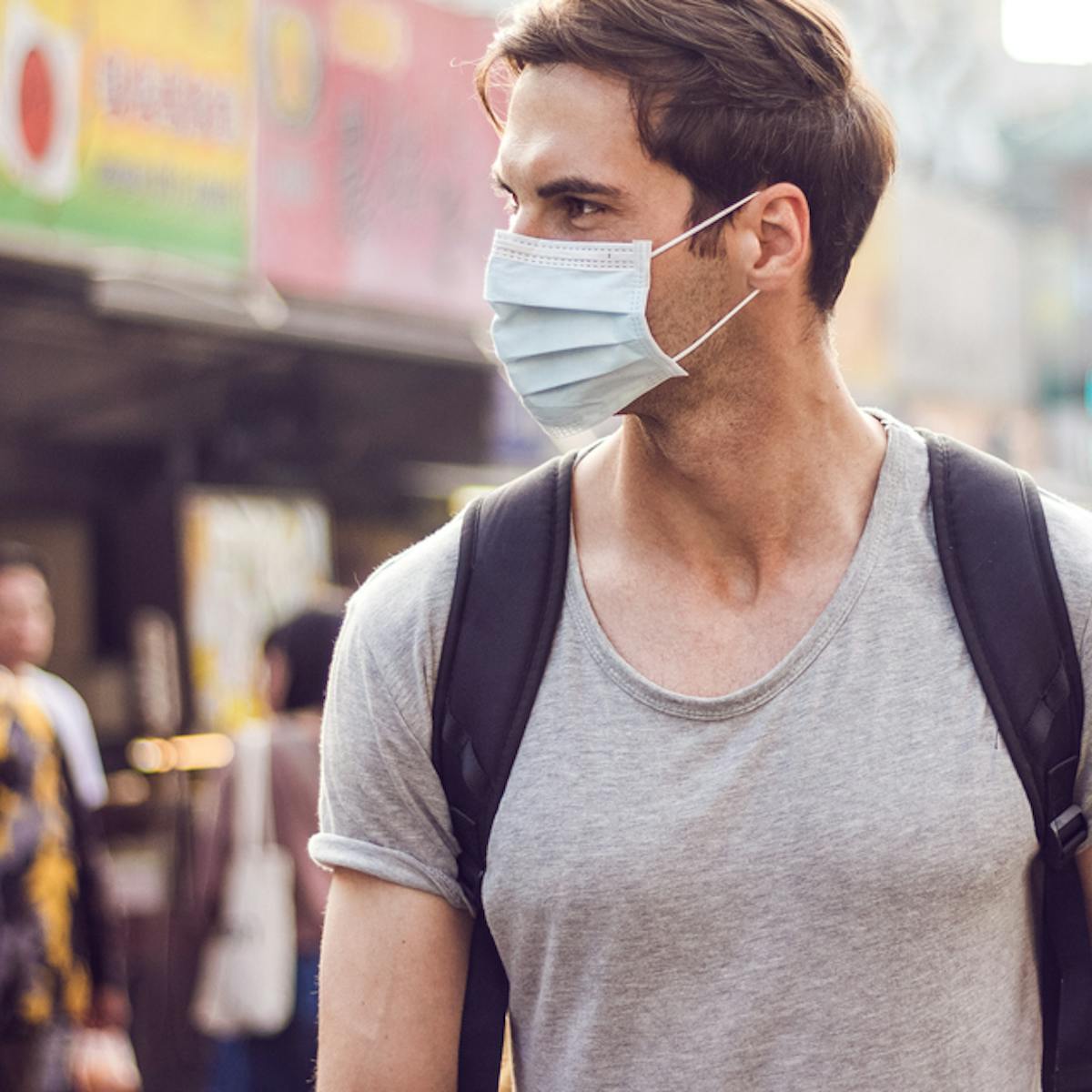
Buy Disposable Surgical Face Masks
These disposable masks can filter large droplets produced by someone coughing or talking loudly near you, and have a moisture repellent outer layer, but they are less able to filter the tiny aerosol particles that also potentially carry the virus, as they don't fit tightly to the face. However, like reusable face coverings, they do help to capture droplets exhaled by you when coughing, sneezing or talking, helping to limit the spread of viral particles. Surgical or medical face masks are single-use disposable products, usually sold in boxes of 50 or more, but they can also be found in smaller packs these days in high street stores and pharmacies. They tend to be blue, rectangular and pleated, with elastic ear straps and a nose wire. They come in three different levels of filtration: Type I bacteria filtering > 95%, blocks exhalation of larger respiratory droplets Type II bacteria filtering > 98%, blocks exhalation of larger respiratory droplets Type IIR bacteria filtering > 98%, blocks exhalation of larger respiratory droplets and is splash resistant .
What medical-grade and nonmedical-grade disposable face masks, as well as respirators, have in common is that they’re designed to be single-use face coverings — after you wear it, or when it gets dirty or contaminated, it goes in the trash.
That doesn’t actually mean you have to toss them after a single use, however. Depending on the mask and how long you wear it for, it can be worn multiple times if you remove and store it properly, and as long as it is not wet or contaminated, for example.

How to shop for surgical disposable face masks
When it comes to disposable face masks, the CDC recommends wearing models that offer:
- A proper fit over your nose and mouth to prevent leaks
- Multiple layers of nonwoven material. Experts told us your mask should be at least two-ply, but three-ply is ideal.
- A nose wire
- No exhalation valve
Disposable masks have become a common sight during the pandemic. Some people find them more lightweight and convenient than reusable cloth masks and they are usually required for medical appointments. They have also been recommended for people who are particularly vulnerable to Covid, as they must conform to specific filtration standards. Disposable masks are usually made of several layers of a type of polypropylene and are either flat, pleated, or moulded to the face. They tend to have a built-in nose wire and simple elastic straps that go around the ears or head.
Read more: https: //www.medizer.net/blog/disposable-surgical-masks
The pros and cons of disposable surgical masks
According to Déry, medical-grade disposable face masks are better than cloth masks at protecting others if the person wearing them is infected.
“There have been a number of studies looking at the efficacy of disposable masks,” Déry said. “In terms of N95 and the three-layered surgical masks, these performed the best, both in terms of the inhalation and exhalation of the virus.”
On the other hand, medical-grade or not, disposable surgical masks create more waste, since they can’t be reworn repeatedly. Plus, supplies may be limited, depending on local Covid surges and mask shortages at medical facilities. And since you have to continually buy new disposable masks, they can end up being more expensive.
Find out about the pros and cons of disposable face masks, the different types and whether a reusable or disposable face mask is best for you
https://www.medizer.net/blog/Which-face-mask

Leave a Comment